
The Government’s Hand in the People’s Pocket
The editorial of Jahan Sanat points out that the Iranian government has no policies to generate revenues for itself, except by making people pay more taxes to compensate for next year’s budget deficit.
It seems that Iranian officials have no other plans for providing for next year’s budget except by taking it from the people. The Parliament has imposed taxes on owners of luxury cars to compensate for a part of the government’s budget deficit.
While economists hold that reducing the government’s expenses will result in the country’s growth and development, the government has no policies in this regard and is only after solving the budget deficit by making people pay more.
The government takes measures that will not result in the country’s growth, but it takes policies that are against growth. Currently, imported cars enter Iran with so many different kinds of expenses, to the extent that the price of imported cars shows a 100% increase compared to their original price.
These expenses include a 25% tax on companies that import cars, a 20% import tax, a 9% tax on added value, and other tariffs that all are pocketed by the government. As such, levying new taxes on cars is a strange thing to do: firstly, it increases the price of these cars; secondly, it can result in widespread inflation.
Certainly, imposing more taxes on luxury cars will impact all groups in society. We should not forget that owners of such cars are financiers and producers, and according to economic theories, increasing their expenses will put other social groups under pressure.
In fact, these people will compensate for the increase in their own expenses by increasing the prices of their goods and services. As such, everybody will share in paying the increased expenses.
Legislation; at the Top or Bottom?
The editorial of Siasat Rooz focuses on the need for substantial changes in Iran’s legislation and laws, explaining that the current numerous problems are due to legislative failure during the past 40 years.
Basically, no one is awarded for his incompetence and inefficiency. Any religious state focuses on social justice and providing for public needs, as well as seeking to guarantee the material and spiritual happiness of society. Numerous problems in society show that it has not been administered properly.
The legislation during the last 40 years shows that different political factions have squandered the country’s resources and opportunities one after the other. Ironically, those who were in power before have now turned into critics, trying to get re-elected in the upcoming parliamentary elections.
Those responsible for the current status of legislation and societal problems, are now claiming that they have the cure for all chronic diseases in the country. They themselves are a part of the chronic disease in the country’s legislation and administration.
If they had the knowledge and the capacity, people wouldn’t be facing so many problems now. As such, to exit the current situation in the country, it is inevitable for there to be drastic changes in law and legislation. This change shouldn’t be just in words or for media propaganda. It should be a change in the real sense of the word – something that is scientifically and practically verifiable.
Undoubtedly, problems like high prices, unemployment, poverty, divorce, addiction, slum dwelling, housing, brain drain, unmangeable imports, drought, traffic, environmental pollution, consumerism, bribery, bureaucracy, corruption, and social pathologies have made lives difficult.
That is why the Guardian Council must exert its maximum powers to implement approbation supervision, while focusing on the competence and efficiency of candidates for Parliament. Just having post-graduate degrees has not been – and is not – enough to solve societal problems.
Trauma of Collective Silence
In recent months, there have been many catastrophic incidents in Iran such as the November protests in which 1500 people were killed or the downing of the Ukrainian plane that resulted in the death of 176 people. The editorial Ebtekar explains why such incidents create a “collective silence” that will have dangerous consequences.
Recurrence of bad news during the past months has put Iranian society in a special situation, which has changed many social concepts. The current situation has had terrible consequences and has challenged many public services in society.
Naturally, any society has certain requirements for a healthy, reasonable, and ordinary existence. Minimum security, wellbeing, civil freedom, and public assurance are all requirements for a healthy ordinary existence in society. In other words, a society that is constantly facing social, political, economic and cultural crises cannot be expected to have an ordinary life.
So when a society faces a lot of catastrophic news and events, it suffers from many collective traumas which can destabilize the foundations of society. One of the most concerning forms of such traumas is “collective silence” which is a social psychological reaction to such calamitous events.
The first symptom of such silence is dialogue being hindered. Due to excitement of these bad events or because of a rational analysis, society reaches the conclusion that it is not possible to engage in dialogue. As such, groups within society knowingly or unknowingly decide not to have dialogue with each other.
In such a society, not having dialogues is accepted as a collective strategy, and the major part of the society uses it as a solution. All these result in a collective silence which can be very dangerous.
The minimum consequence of such a silence is the lack of understanding between social groups. As such, the common beliefs of the nation are forgotten, and different groups within the geographical borders of Iran will change into isolated colonies, while basic concepts like national interests, public demands, and central government lose their meanings.
One other consequence of such a situation is collective isolation. People turn into small isolated, and lonely groups that are not even interested in dialogue.
A New Wave of Inflation
The editorial of Jahan Sanat, written by Majid Reza Hariri, head of Iran-China Chamber of Commerce, explains why the Iranian government shouldn’t be after generating revenues for itself by increasing the price of dollar.
According to the latest report of the Parliament’s Research Center, changing the rate of dollar in import declarations can generate 35,000 billon tomans of revenues for the government. But if this measure is taken to simply increase the government’s revenues, it is absolutely wrong as it will increase the prices of goods and will result in inflation.
Under current circumstances when the country’s economy is facing negative growth and inflation, any move by the government that ends in more inflation is wrong and will impose more expenses on people. But on the other hand, if the rate of dollar in import declarations changes to increase transparency, that is the right move.
The truth is that currently more than 80% of imported goods are intermediate goods and raw materials for production lines. So if the rate of dollar is changed to increase the government’s revenues, it will certainly result in increasing the prices of imported goods, as well as domestic products.
Changing the rate of dollar in import declarations means that the price of dollar goes up from 4200 tomans per dollar to about 12000 tomans per dollar. This will result in a 2.5 times increase in customs tariffs. This will certainly result in an increase in the price of goods and the rate of inflation.
If the government is after increasing its own revenues by this move, it means that it has taken money out of people’s pockets for its own expenses, which is absolutely wrong.
Democratic governments run the country by taxes they receive from the people and they are accountable to them. But in Iran, the government is after obtaining money for its expenses from the people and not be accountable to them.

Admitting the Role of the Quds Force in Confronting the Syrian People
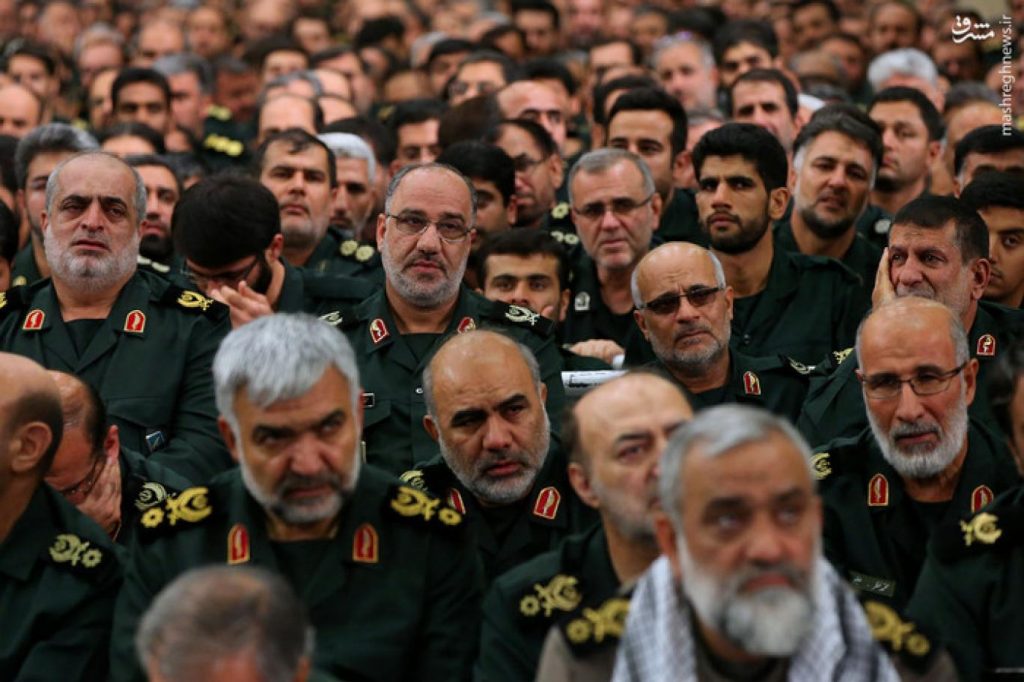
Fars news agency that has close relation with the IRGC issued a long report about the history of the IRGC’s Quds Force and its activities in Syria.
The long report points out that the Quds Force’s consultants trained Syrian police on how to confront protests. The report calls the Quds Force “combatant without borders” which was how the Iranian supreme leader Ali Khamenei recently called this force.
The report openly confirms the Islamic Republic’s interference in other countries in the region and the Iranian regime’s policy of influence in Syria.
According to the Fars news report, before popular protests in Syria turned into a civil war and radical groups like ISIS partcipated, the Quds Force and Iranian law enforcement forces helped Bashar Assad’s regime in suppressing Syrian protesters.
Syria was one of the last countries in the Arab world to experience protests during the Arab Spring. But a severe crackdown by Assad’s regime did not allow popular protests in this country to grow. Syria entered a war for several years, as a result of which many people were killed and lost their homes.
The report clearly states that other militia groups in western Asia including Ansar Allah, Hashd al Shaabi, Fatemiyoun, Hamas, and other Shiite militias in the region are a result of the Quds Force’s activities and training.
Meanwhile, the IRGC chief commander Hossein Salami has said that “if America threatens the IRGC commanders, its commanders’ lives will not be safe anywhere.” It seems that he was pointing to the remarks of Brian Hook, the US special representative on Iran, who recently said that if Qassem Soleimani’s successor follows his path in killing Americans, he too will have the same destiny.
After Soleimani was killed by American forces, Khamenei appointed Esmail Ghaani as the commander of the Quds Force.
Oil Minister: Iraq Does not Pay for the Gas It Receives From Iran
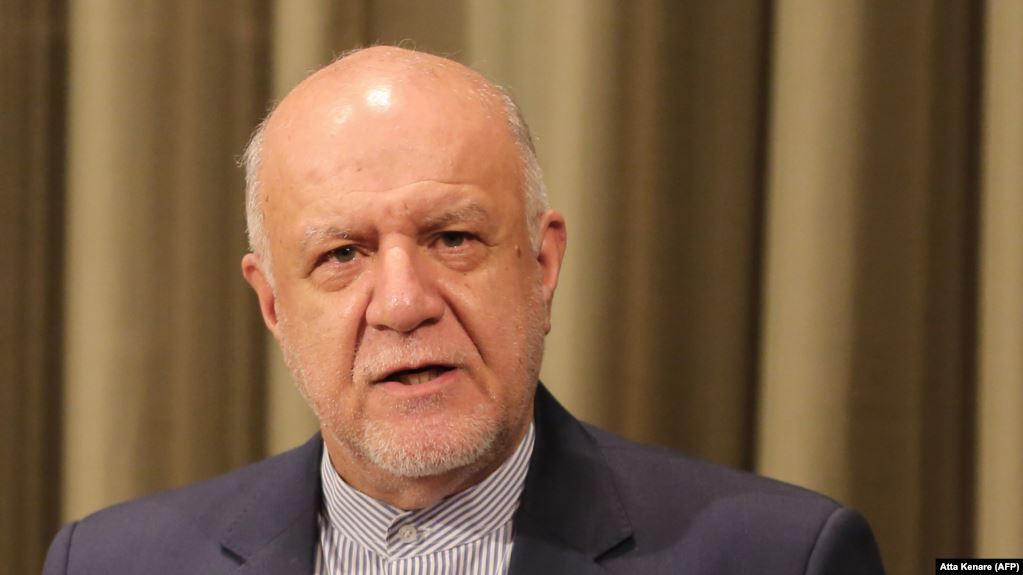
Iran’s Oil Minister Bijan Zanganeh has said “Iraq does not pay any money to us for the gas we send to this country.” He also pointed out that Iran’s gas export to Iraq has been reduced due to “technical reasons.”
Zanganeh had previously said that Iraq owed $2 billion to Iran for gas and electricity but could not pay its debt because of the US sanctions. Meanwhile, Iraqi officials say that they have deposited money into Iran’s account at Tejarat Bank in Iraq without clarifying the exact amount of that money.
Iraq’s Tejarat Bank lately announced that if the United States do not extend the exemptions next month, this bank has to stop transactions between Iraq and Iran. Iran exports 50 million cubic meters of gas to Iraq on a daily basis– which is mainly used as fuel in Iraqi power plants.
Rouhani: I’m Worried That ‘Republicanism’ Might Turn into a ‘Crime’ in Iran
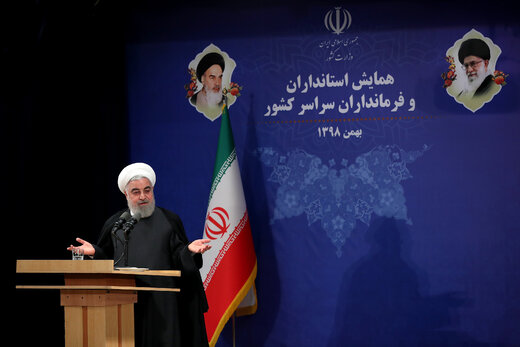
President Hassan Rouhani has criticized the Guardian Council for disqualifying candidates who plan to participate in Iran’s next parliamentary election, saying “I’m worried that one day the word ‘republicanism’ might turn into a crime” in Iran.
Speaking at a meeting with governors, Rouhani slammed the way candidates were disqualified by the Guardian Council: “They send someone to a street [to do research on a candidate] and it is not clear who he talks to and what he hears and then he writes a report,” said Rouhani, “How is it possible to manage a country like this?”
Hassan Rouhani continued that appointing individuals in key positions is dangerous for democracy. He added that elections might turn into some kind of a formality in Iran. “And then people are asked to take part in this formality of elections,” he asserted.
Referring to holding a referendum in Iran, Rouhani said, some do not like the word referendum while the Islamic Republic itself was established based on a referendum.
On a different note, Rouhani implicitly pointed to the non-approval of bills related to money laundering in the Expediency Council, saying: “If we continue like this, our relations with the world will become problematic. How is it possible that Iran’s banking relations with the world come to a halt or get disrupted? Who makes the decisions in this country?”
It should also be mentioned that Iran’s state TV (IRIB) refused to broadcast Hassan Rouhani’s speech.
The Families of the Plane Crash Victims Say Officers at Tehran’s Airport Harassed Them When Leaving Iran
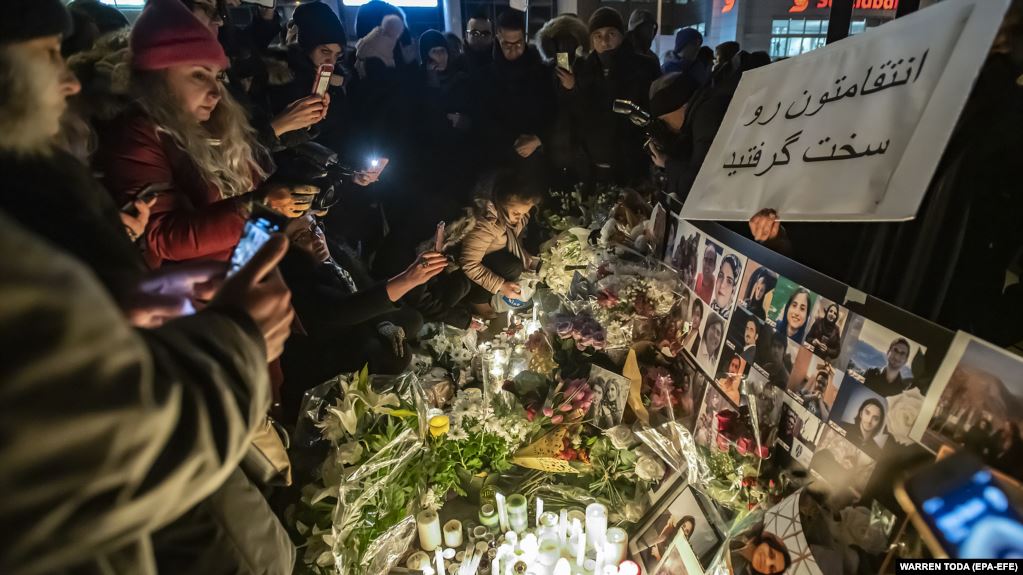
Family members of those who lost their lives after the IRGC downed a passenger plane in suburbs of Tehran on January 8 say Tehran airport officers harassed them before leaving the country.
Hamed Esmailion, who lost his wife and daughter in that catastrophe, divulged the mistreatment of victims’ relatives in a Facebook post addressing Tehran airport officers: “Let the family members exit the country easily for them to participate in funerals…it is none of your business why the Canadian government issued their visas in a few hours.”
A number of family members who planned to bury their loved ones in Canada had applied for a visa from Canada. The Canadian immigration office recently issued a statement, announcing that it would facilitate immediate travel of those family members to Canada.
Family members have not only been subject to harassment at airport but were threatened against giving interviews to foreign media.
Javad Soleimani, husband of Elnaz Nabiei who was killed in that plane crash, said he was summoned by the Intelligence Ministry and threatened: “The very same day that her funeral was held, they told me: Shut your mouth! This is the first and last warning.”
Soleimani pointed out that he had not said a word so that his wife’s body could be buried as soon as possible. Afterwards, he posted on Instagram that he was forced to hold her funeral and burial ceremony the way the IRGC had ordered.
Ukraine International Airlines Flight 752 was shot down by the Islamic Revolutionary Guards Corps in the suburbs of Tehran when leaving this city for Kiev on January 8. All 176 passengers and crew – including 146 Iranians, 61 Canadians who were mostly dual nationals, 11 Ukrainians and a number of Afghani, Swedish and British nationals – were killed.
$1.5bn Drop in Turkey’s Exports to Tehran
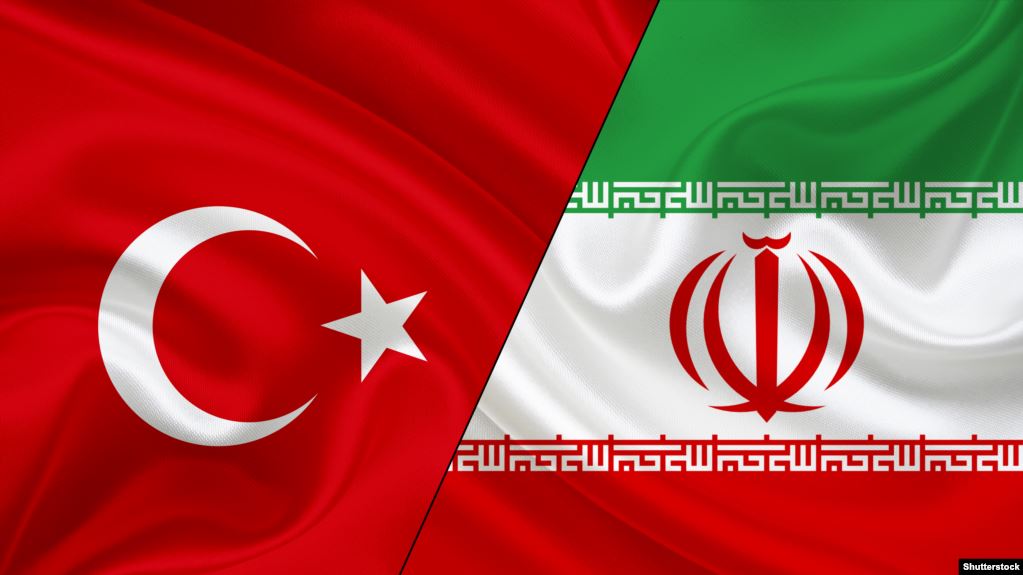
Turkey’s trade minister criticized the US sanctions against Iran saying that this country’s exports to Iran show a $1.5bn drop. Ruhsar Pekcan asserted that despite a drop in Turkey’s exports to Iran, the entire exports of this country reached $180.46bn in 2019, showing a 2% increase compared to 2018.
Turkey has always criticized the US sanctions against Iran, calling them a violation of international laws.
This country, however, has fully followed the US oil sanctions on Iran, and has stopped importing oil from Iran, since last May when America didn’t extend waiver for buyers of Iran’s oil.
According to the latest report of Turkey’s Statistics Center, this country’s exports to Iran reached $2.1bn for the past 11 months, which show a $200mn decrease compared to the same period in 2018 and a $1.15bn drop compared to 2017.
Turkey’s Statistics Center declared that in the past 11 months, this country’s imports from Iran were about $3.2bn; for the same period in 2018 and 2017, it was respectively $6.5bn and about $7bn.
So Iran and Turkey’s mutual trade in the current year is almost half of 2017.
Despite Turkey’s criticism of the US sanctions every now and then, this country has a rather high level of trade with the United States. Bilateral trade between the two countries reached $17bn during the past 11 months.
